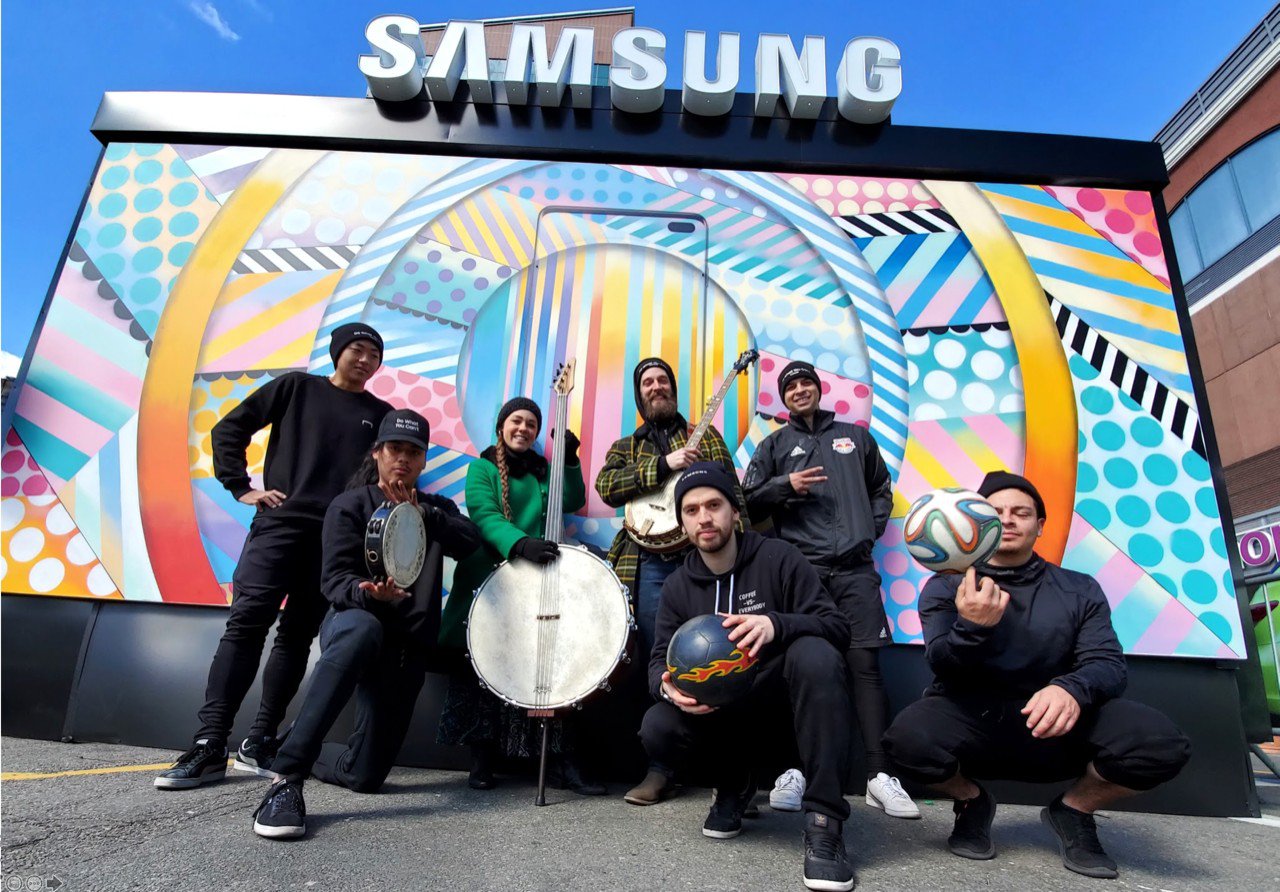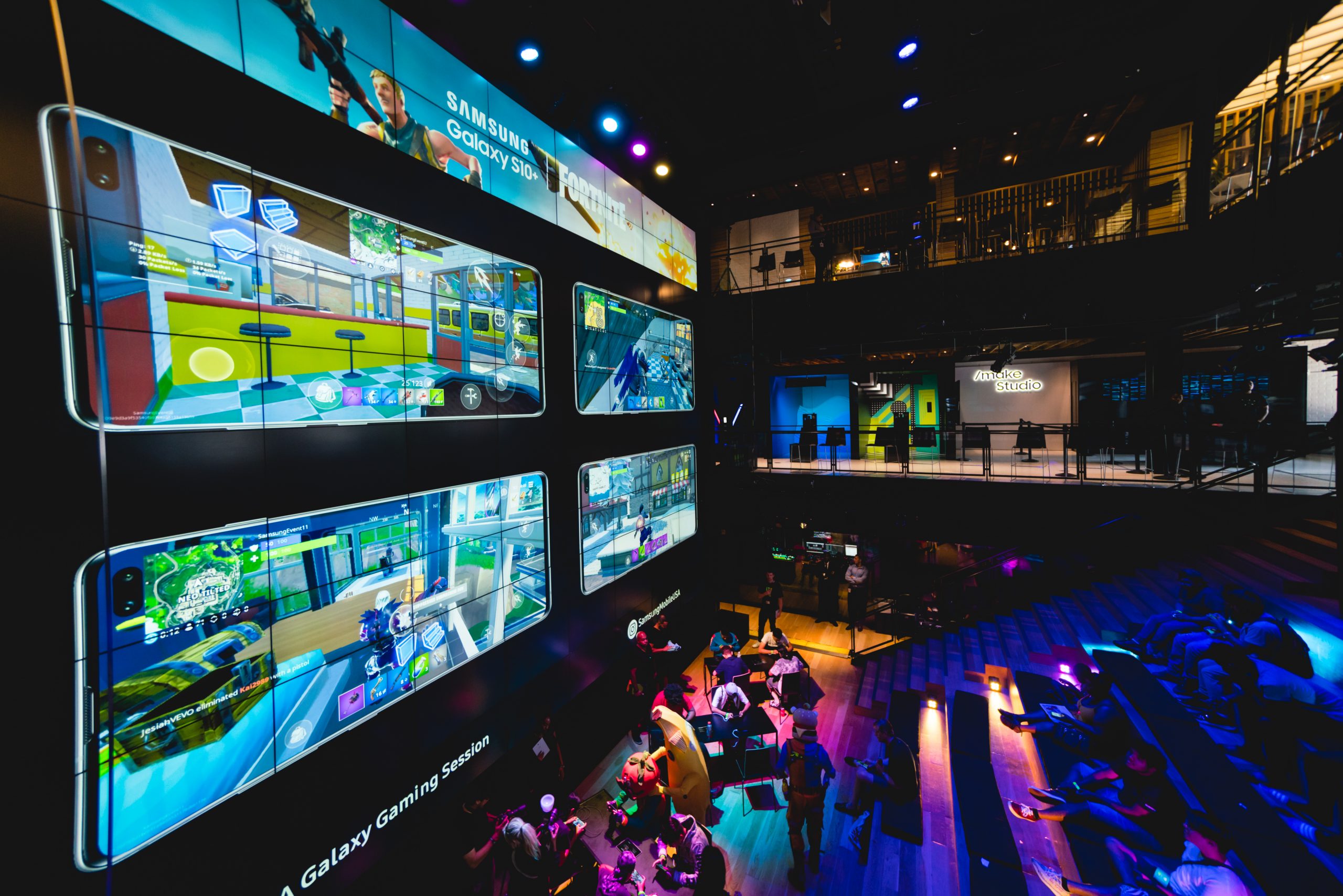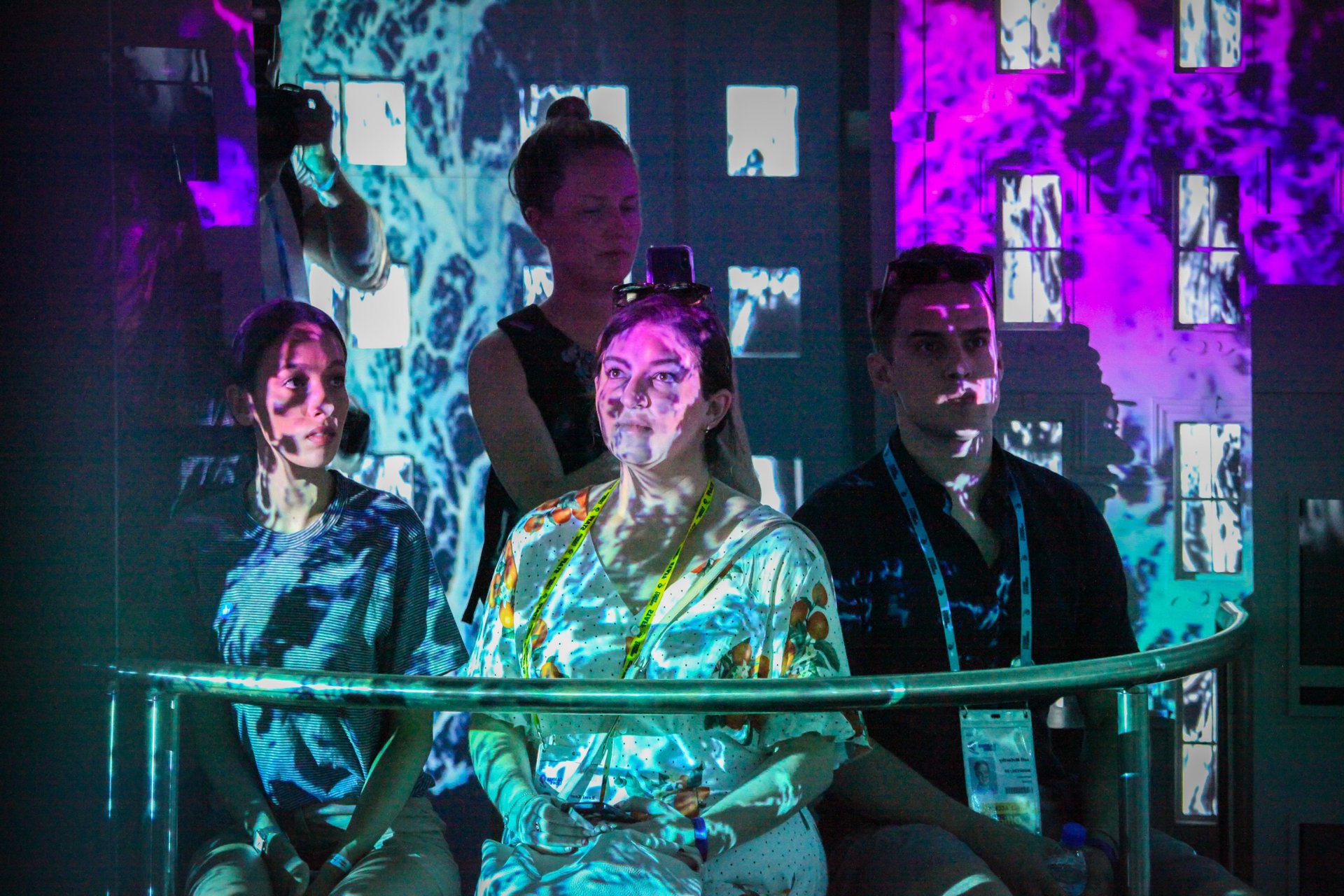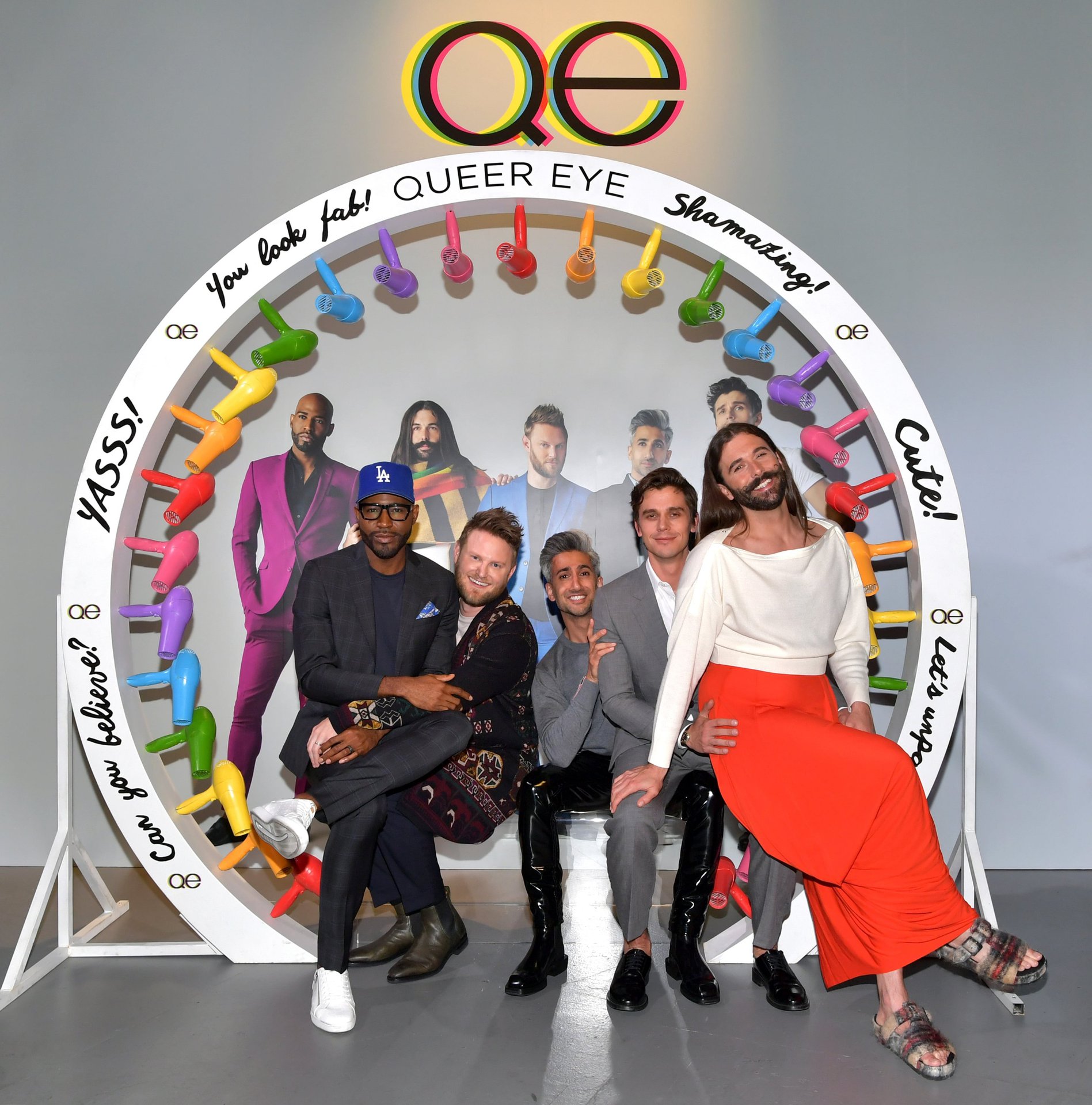
Experiential marketing agency We’re Magnetic counts Netflix, Samsung and American Express among their clients. The globally-minded company has offices in New York, London, and Los Angeles. We're Magnetic President Jessica Reznick is an evangelist for understanding the needs of Generation Z. She shared her insights with us for engaging the next generation.

The Vendry: We're Magnetic is known for working with Gen Z. How do you define that generation? What makes someone a member of Gen Z?
Reznick: I think the easiest way to think about Gen Z is those born after the mid '90s. The oldest are in their mid 20s; the youngest are teens. A lot of them are getting ready for college– whether they are currently looking at and applying to schools, or enrolled. What I really love about Gen Z as a generation is they are old souls. They show a lot of the values that their parents, the Gen X-ers, really put a strong emphasis on like independence and entrepreneurial spirit. They have jobs at an early age or a side hustle and they place a high priority on financial independence. I’m excited about designing for Gen Z, because everyone's been talking about Millennials for so long. Even though I am a cusp Millennial, my values align more strongly with the X-ers. So I love seeing this new generation come up and bring those back.
The Vendry: So since Gen Z has these unique generational values, it must take a special kind of event to reach them. What’s an example of an activation that you've done that has been built to reach Gen Z where they’re at?
Reznick: I'll be honest about the fact that historically most of our experiences have been tailored more to the Millennial because that's what brands have wanted us to focus on. Being able to focus on Gen Z is a passion of mine and something that we're urging our brands to consider faster so that they're not playing catch up with this generation. We do have a partnership with Samsung America and they are a very experience-focused brand. We work with them in their 837 space in New York City. Recently, we did an event with them to promote the Fortnite World Cup. The experience encouraged competition, which is something we see Gen Z embracing, whereas Millennials prioritize collaboration. Then again, Fortnite and their World Cup isn’t just a game but a social network to meet new friends.
There's also a lot of conversation at 837 about inclusivity and diversity in the workplace. Gen Z is one of the most diverse generations we've seen yet, and they really do see the world differently in terms of looking at gender and how they talk about themselves and how they see themselves.

The Vendry: Authenticity has become so important for brands these days. Could you talk about how you see the definition of authenticity evolving?
Reznick: I’m not sure it’s evolving so much as we’re getting clarity about Gen Z’s expectations regarding brands. They expect that a brand is going to be in conversation with them. They want brands to walk the walk. If a brand says they stand for something, Gen Z expects them to follow through with actions. This is a generation that wants to have a direct creative relationship with brands.
For example, a few years ago we did an Instagram Stories festival in Cologne to launch Stories in Germany. Obviously, at the time that was to be competitive with Snapchat, and Instagram did a good job as they are now among the top brands for Gen Z. The event was in partnership with Wieden+Kennedy and resembled the type of festival environment that Millennials go to. So you had everything from a giant swimming pool and ball pit with palm trees to a ‘bubble bar’ and prism room that would give you the perfect rainbow lighting for Instagram shots.
The environment was designed to share purposefully and to entertain; however, the focus was a content contest and it was to create localized stories and promoted through Instagram Stories and through the brand itself. You could win for sharing your best local story through the platform. And so all the messaging really encouraged the generation to start creating content around their local city, in this case, Cologne.

The Vendry: I’m curious. How much research is out there on Gen Z since it’s such a young generation? Where do you get your data from?
Reznick: A little over a year ago we actually launched our own internal research and insights practice called Magnetic North. I brought over a friend and colleague who had worked at The Standard Group to lead this initiative for us. Magnetic North is getting ready to publish its first original Gen Z trend report by the end of the month, as well as a host of other services that will be coming out around data and insights. So we have a consistent stream for us internally of both the original data that's coming out of Magnetic North and then highlights from existing data that are coming from other platforms. On top of that, I'm constantly reading. I think it's really important to keep up with marketing trends, what brands are doing, why brands are doing it.
The Vendry: What advice do you have for brands that want to reach that Gen Z on the social media platforms they’re using like Snapchat, Instagram, and TikTok?
Reznick: Don’t try and trick this generation. They were born into a technological age where information is readily available in a way that no other generation has seen. So you can't fool them and you shouldn't really try to because if you try and trick them in your messaging, which goes back to the authenticity question, you are at risk of Gen Z really blocking you out. And that could be detrimental to a brand. Choose a message that you really believe in and are prepared to back up with actions. MTV’s Video Music Awards changed their categories to be genderless and renamed the statue to Moon Person. Little shifts like that show Gen Z that you are a brand that understands how they see the world and are willing to adapt.

The Vendry: Is there one industry or group that’s leading the way on connecting with Gen Z? How can we learn from that and channel it?
Reznick: I think the tech industry is probably doing the best. There were two recent lists that came out about the top hundred brands for Gen Z, and on both lists you saw YouTube, Google and Instagram all rising to the top. It’s probably better to look at what brands are doing the best rather than which industries, because I think in all the industries, there are some brands that stand out. One of my favorite examples actually comes out of the UK where Vodafone released a brand and phone plan called Voxi. Voxi is literally a phone network for people under 25 and it's big rallying cry is endless social media. So they've created phone plans where use of apps like Snapchat, Instagram, Twitter, et cetera, are all free and don't hit your data. That’s a great example of a brand that takes Gen Z seriously.
Oreo is another example. You go to the store and there's birthday cake Oreos, state fair Oreos, fudge dipped Oreos, red velvet Oreos, carrot cake Oreos. They're showing through a food brand that they understand that not everyone likes the same thing and there's something for everyone and you can each have your own personal likes and still enjoy Oreos. I live in a household with a 16 year old, a 12 year old and my husband and we will literally go to the store and each one of them will pick out their own Oreo flavor.
Brick and mortar is coming back, while proto-museum experiences are not as trendy as they once were. We’re coming out of an era in which a lot of brands tried to figure out what their version of 29 Rooms or Museum of Ice Cream was. I get frustrated when I go through some of these experiences and I just feel gimmick-ed. When you go into an installation where the artist really has a purpose and a message that they're trying to achieve, you can feel it in the way they’ve created and crafted the story. People who are in the experiential design industry can feel the difference in the quality of materials chosen. People who don’t know the industry, they can’t always put their finger on what it was, but they feel an empty void when they leave an ‘experience’ that is really just a gimmick. Consumers, led by Gen Z, are starting to rebel against brands that say give me $40 and get your four photos.